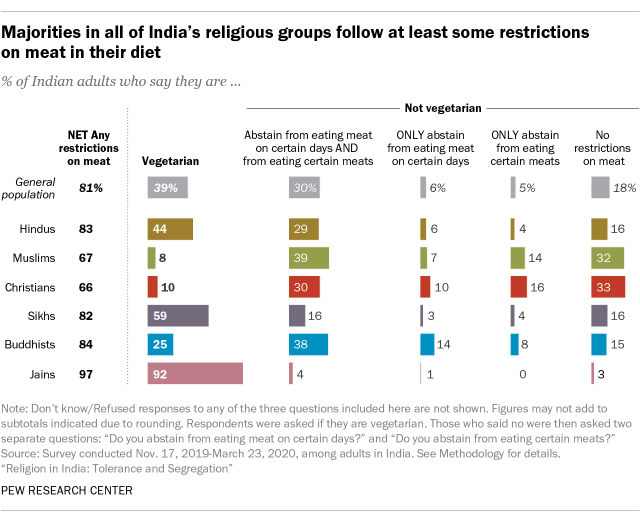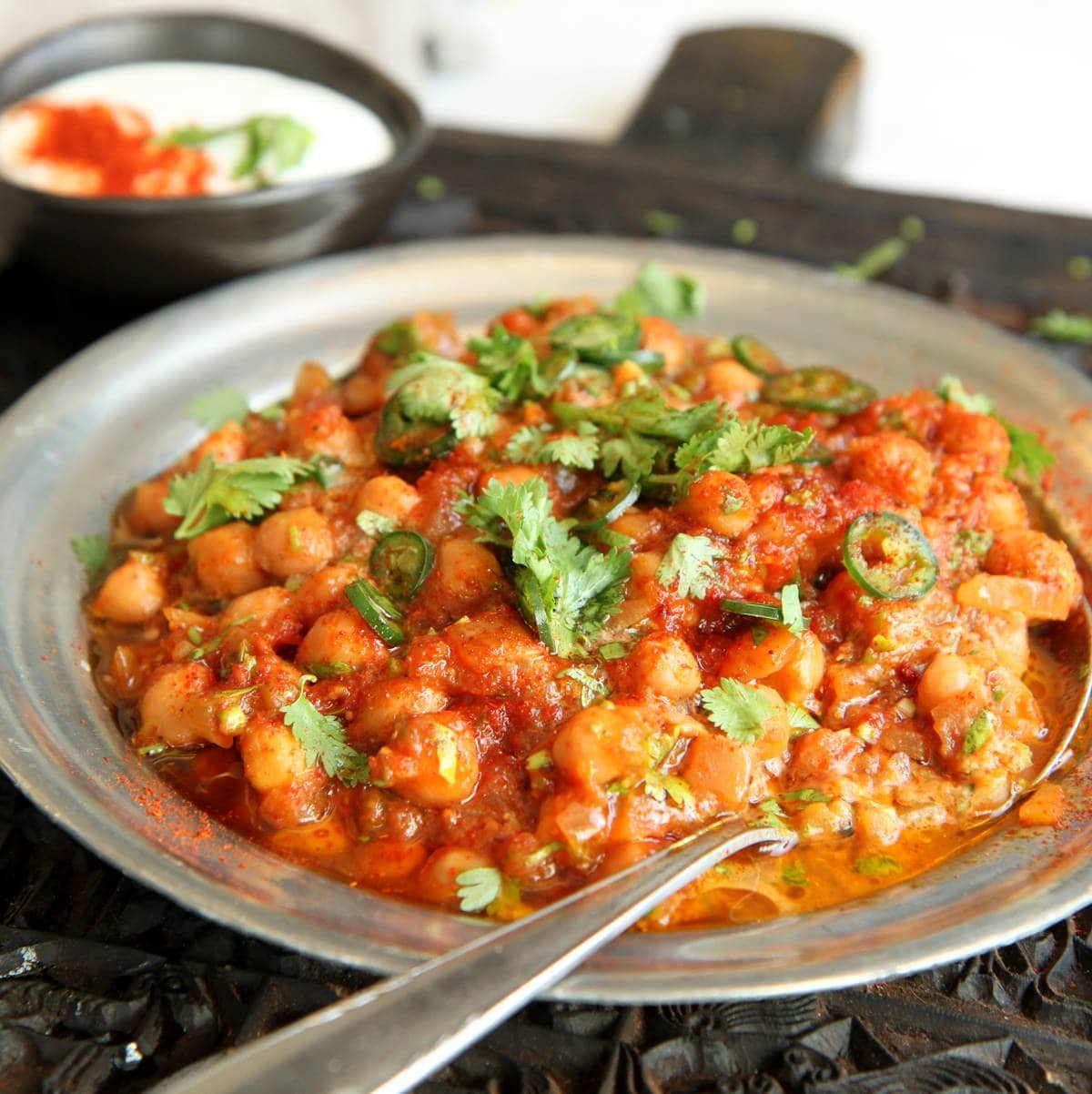sium
Associate member
 
Posts: 3 
|
Post by sium on Dec 14, 2021 0:04:25 GMT
All of India's most widely practiced religions have dietary laws and traditions. For example, Hindu texts often praise vegetarianism and Hindus may also avoid eating beef, because cows are traditionally viewed as sacred. Muslim teachings, meanwhile, prohibit pork. The vast majority of Indian adults (81%) follow some restrictions on meat in their diet, including refraining from eating certain meats, not eating meat on certain days or both. However, most Indians do not abstain from meat altogether – only 39% of Indian adults describe themselves as vegetarian, according to a new Pew Research Center survey. (While there are many ways to define vegetarian in India, the survey left the definition up to the respondent.)  |
|
|
|
Post by farmgirl on Feb 6, 2022 23:56:07 GMT
39% of Indian adults describe themselves as vegetarian Still, that's enough to make India the largest vegetarian country in the world. For thousands of years, this part of the world has followed a culturally rich diet heavy in regional vegetables and spices. Today, Indian cuisine has become a go to for vegetarians and vegans around the world. It's by far one of the most vegetarian friendly global cuisines around, offering tasty options form chickpeas, paneer cheese; and a unique and mouth watering ability to make vegetables taste delicious. In my opinion, Chana Masala should be at the top of your list for Indian vegetarian dishes. This mouth watering chickpea curry is often a staple and regional favorite of North Indian breakfasts. It is usually accompanied with bhatooras, onions, carrot pickle, green chilies and achaar. Might want to save it for lunch if you're used to cereal and eggs kind of meal for breakfast, though.  |
|